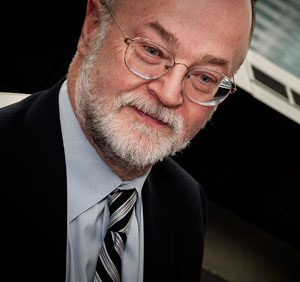A Toronto law firm has obtained leave to appeal an order of a judge who removed it from a case on the basis of conflict of interest even if the traditional test for a conflict wasn’t met.

On Nov. 27, Divisional Court Justice Barbara Conway found “there is good reason to doubt the correctness of the motion judge’s order” to remove the firm despite the fact the party affected by the conflict wasn’t a former client or “a near client” of the firm.
Superior Court Justice David Brown had removed Teplitsky Colson LLP as counsel of record for the plaintiff in a matter to do with alleged mismanagement of a hedge fund after finding it had obtained confidential information about the defendant company from an employee who was a former client of the firm.
By the time one of the firm’s lawyers started providing employment law advice to Sean Chopra, a junior trader with the defendant Flatiron Market Neutral LP, another Teplitsky Colson lawyer had been assisting the plaintiff, Performance Diversified Fund, with a mismanagement matter against Flatiron.
In fact, the plaintiff had initially named Chopra as one of the defendants before dropping him from the suit later on. The law firm’s conflict search system had failed to catch the issue, according to Brown’s ruling.
Brown said the firm couldn’t continue to represent the plaintiffs despite making a specific finding that Flatiron wasn’t a former client of the firm, one of the requirements for removal set out in
Macdonald Estate v. Martin.
Brown made his decision on the basis that confidential information about Flatiron had reached the law firm through Chopra.
“So, too, in the present case, confidential information provided by Chopra in a solicitor-client relationship ended up, in a sense, in the wrong hands,” wrote Brown in
Performance Diversified Fund v. Flatiron GP Inc. earlier this year.
“Teplitsky Colson should never have accepted Chopra’s retainer; they were in a conflict of interest situation. The firm gained access to confidential information to which it should not have gained access. That resulted from inadequate client file opening and conflict search systems in place in the firm at the time.”
According to Harvin Pitch, the lawyer who obtained leave to appeal Brown’s decision, the ruling doesn’t address the second part of the test for conflict.
“The second part of the [Macdonald Estate] test is that you have to show that you’re going to use that [confidential] information against the client who provided it. That’s the test, that’s the key,” says Pitch.
“The mistake Justice Brown made . . . according to Justice Conway, is that he did find the confidential information was relevant to the current matter but then goes on and finds the people who are complaining about it are not former clients, were not near clients,” Pitch adds. “They’re strangers.”
Had Chopra remained a defendant in the lawsuit, “we would lose,” Pitch admits, because he was a former client.
McCarthy Tétrault LLP general counsel Malcolm Mercer says the case is “fascinating” and could raise new questions about whether law firms must uphold the duty of confidence clients owe to their employers.
“The employee does owe a duty of confidence to the employer and what I think [Brown] is effectively saying is that the law firm must honour that obligation of confidence as well,” says Mercer.
“What I think is interesting about this case is do we analyze this in applying the ways we protect confidential information or should the courts think about this in the way they deal with lawyers and their clients?” Mercer asks.
At Teplitsky Colson, although partners practise under the same firm banner, each of them works on files they obtained and pays their own separate staff. Those circumstances, however, weren’t sufficient for Brown, who found the lawyers should have taken more steps to protect Chopra’s information from counsel for the plaintiffs.
“When the conflict was brought to the firm’s attention, it denied that a conflict existed, but it did send Chopra’s file to off-site storage,” wrote Brown.
“The firm took no other precautionary steps to ensure that no . . . access could be had to Chopra’s file; no confidentiality screen memorandum was circulated amongst the relevant lawyers not to access the file. Nothing else was done,” added Brown, noting the steps taken were insufficient in light of the requirements under MacDonald Estate.
Pitch says Brown was “upset by what we didn’t do, but in law, you have to harm the client.”
Pitch also says that in hindsight, the firm could have taken more steps. “I think the case is a good example, where a client is harmed or there is a potential to harm a client versus a stranger, it’s better to take broader steps. If there’s a lesson to be learned, [it’s] we could have avoided all of this if we dotted our Is better,” he says.
For Conway, the case is an important one. “The proposed appeal further involves matter of such importance that in my opinion leave to appeal should be granted,” she wrote.
“It is critical for litigants to know when and on what basis the law firm of their choice can be disqualified by an opposing party.”

 On Nov. 27, Divisional Court Justice Barbara Conway found “there is good reason to doubt the correctness of the motion judge’s order” to remove the firm despite the fact the party affected by the conflict wasn’t a former client or “a near client” of the firm.
On Nov. 27, Divisional Court Justice Barbara Conway found “there is good reason to doubt the correctness of the motion judge’s order” to remove the firm despite the fact the party affected by the conflict wasn’t a former client or “a near client” of the firm.